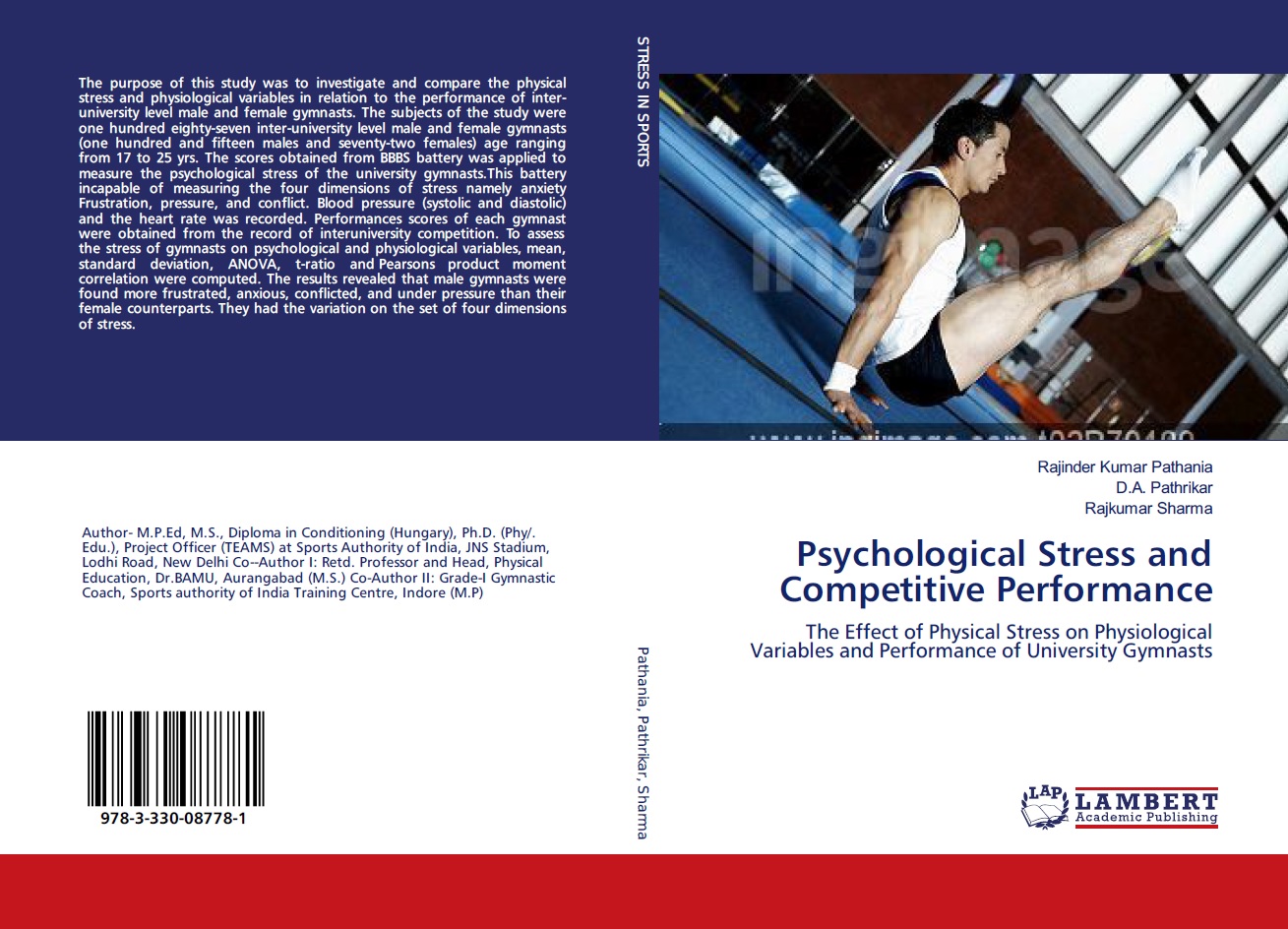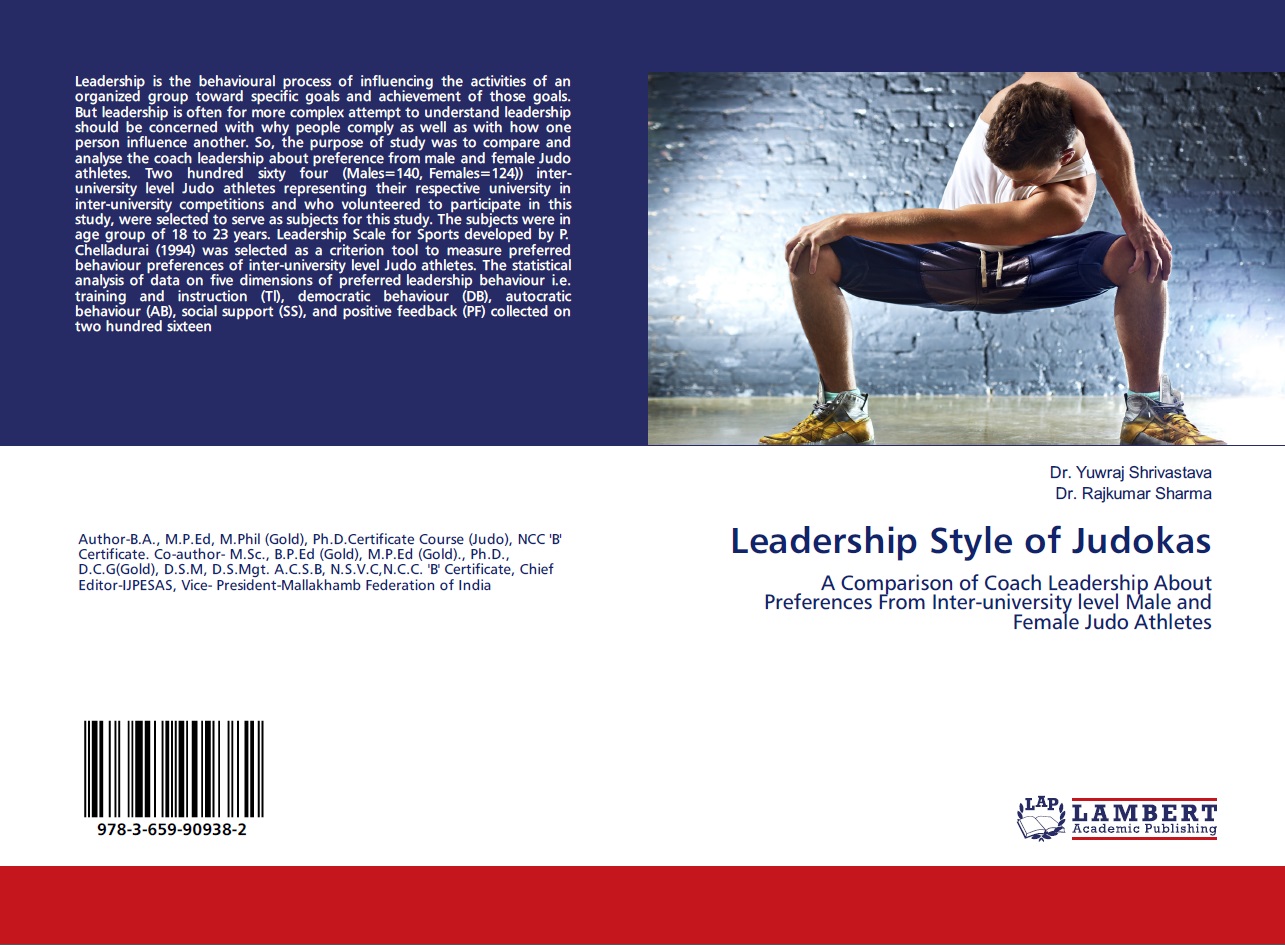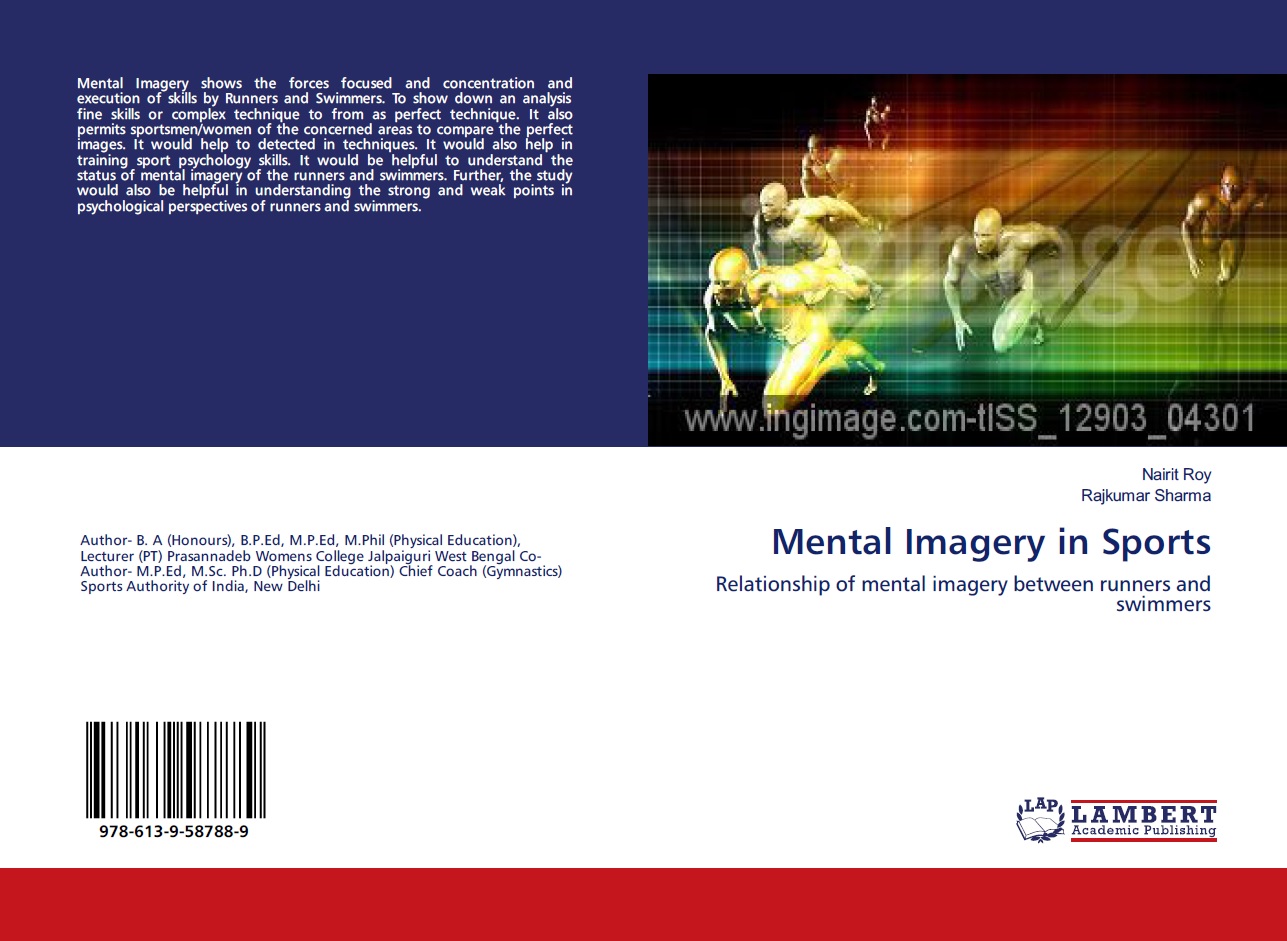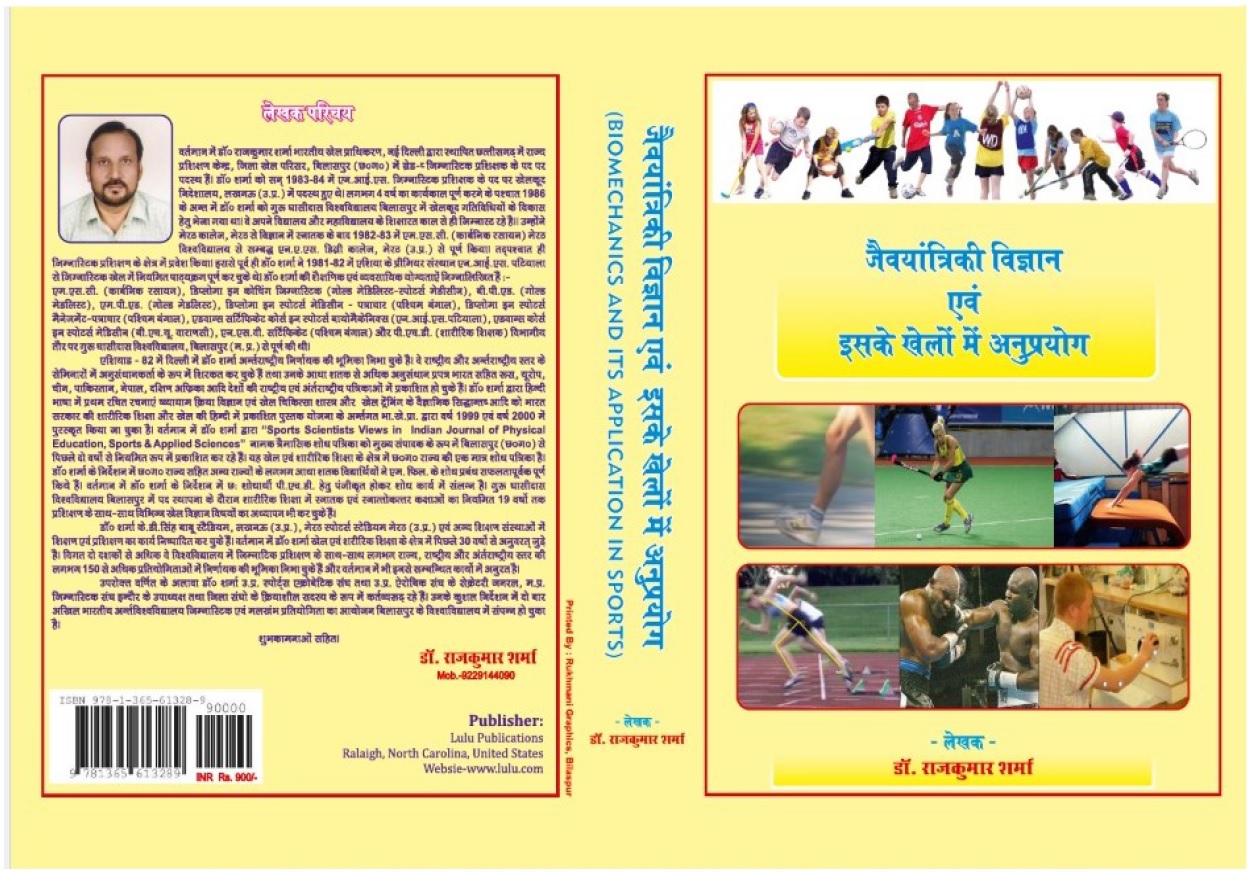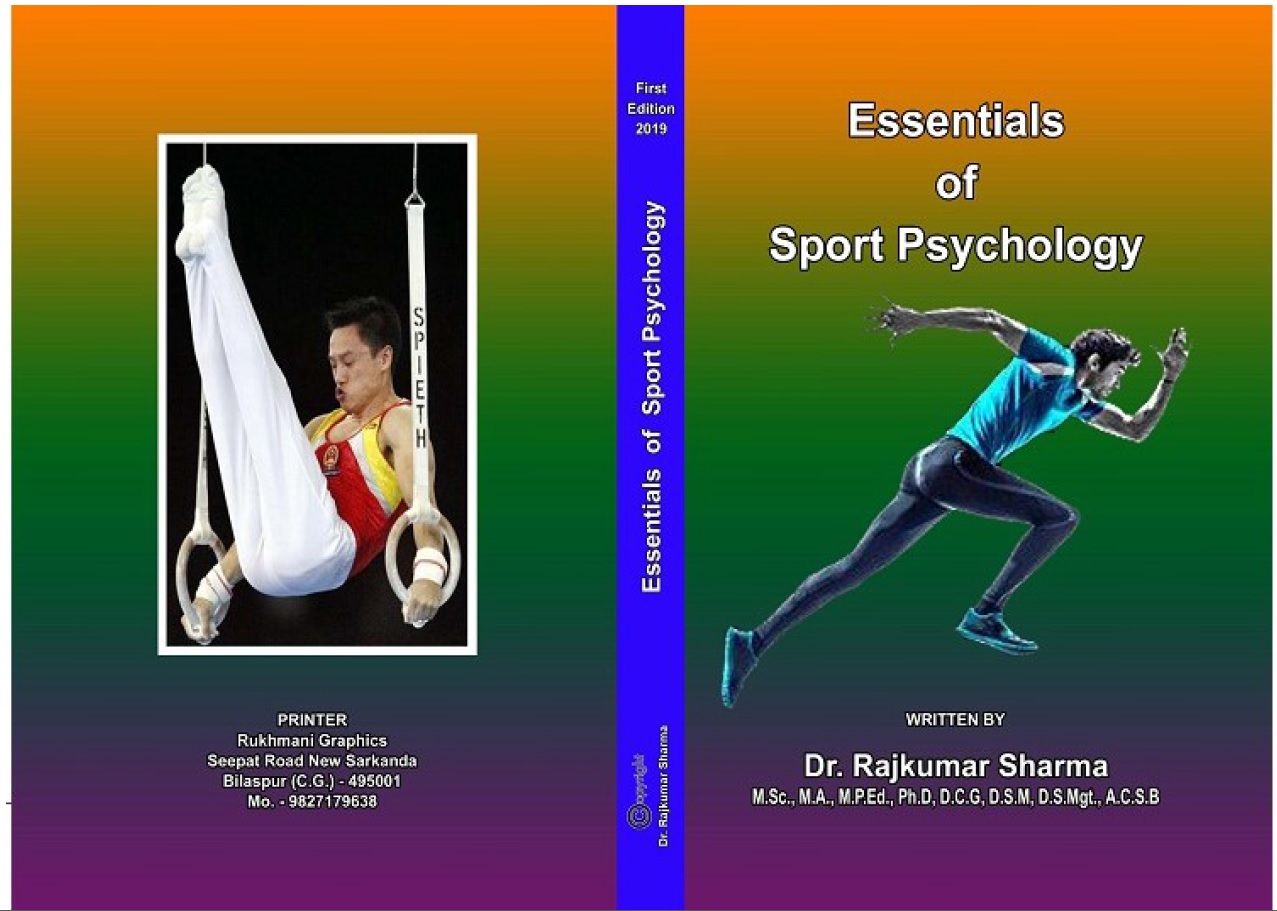| S.No. | Total View Count | Title of Manuscript | Page No | Download/ PDF |
|---|---|---|---|---|
| 1 | A COMPARATIVE ANALYSIS OF SELECTED PHYSICAL FITNESS AND ANTHROPOMETRIC VARIABLES OF MALE VOLLEYBALL PLAYERS AGED FOURTEEN TO SIXTEEN YEARS Author: Shankarappa C.1 & Dr. S. V. Arun 2 | 44-52 |  11 11 |
Article info
doi no.: 05-2016-44975451,
DOI Link :: http://doi-ds.org/doilink/02.2021-88676741/IJPESAS/2021/JAN/V11/I1/A8
AFFILIATIONS:
- Ph.D Scholar, Physical Education, Sre Manjunatha Swamy First grade college, Saraswathi Nagar, Devangere, Bengaluru, (Karnataka), 9035955478, Mobile-cshankardvg@gmail.com
- Director of Physical Education, C.Kandaswami Naidu College for Men, Chennai 600102 gpsmphd@gmail.com
Participation in sports is one among the common traits of human character and it starts to develop from the terribly starting of childhood. The main objective of study was to analyse and compare the selected physical fitness and anthropometric variables of male volleyball players of different age groups. A total of forty five male volleyball players belonging to Dr. A. V. N. High School , Davangere, Bengaluru, (Karnatka) ranging between fourteen to sixteen years were selected for the study. The physical fitness variables i.e. Cardio-respiratory endurance, Agility, flexibility and anthropometric variable i.e. weight, height, body were chosen for the study. Nine-minute run For Cardio-respiratory endurance, Sit and reach for Low back/hamstring flexibility, Bent knee sit-ups in one minute for Abdominal muscle strength/endurance and Triceps and sub-scapular skin-folds for body Composition were administered. To assess the selected physical fitness and anthropometric variables of male Volleyball players ranging between 14 to 16 years of age means, standard deviations and F-ratio were computed. The results of the study indicated the significant differences among the different age groups of male volleyball players on modified sit-ups and 8 minutes run/walk,. Significant difference was not seen among male volleyball players from fourteen to sixteen years of age on sit and body composition, The abdominal strength and endurance had significantly improved with advancement of age. The cardio-respiratory endurance of male volleyball players did not improve significantly with advancement of age
Key Words: Physical fitness, Anthropometric, male, volleyball players, Body composition.
References
Amusal, L. O., Goon, D. T., Amsey, A. K., and Toriola, A. L. (2011), “Health related physical fitness among rural primary school children in Tshannda”. South Africa. Scientific Research and Essays. 6 (22) : 4665-4680.
AAHPERD (1987), Health related physical fitness test manual. Reston, VA: American Alliance for Health, Physical Education, Recreation and Dance.
Behnke,Albert A and Wilmore, Jack H. (1974). Evaluation and regulation of body build and composition, Englewood Cliffs, N.J : Prentice-Hall, Inc.
Campbell W.R. & Pohndof, R.H. 1961.Physical fitness of British and American children. In: health & fitness in the modern world. Athletic Institute, Chicago
Dutt, Sunil 2005.Health related physical fitness of boys aged 8 to 18 years, Journal of Exercise Science and Physiotherapy, 1(1 & 2), 12-22.
Guedes DP, Guedes JERP, Barbosa DS, Oliveira JA. 2002.Habitual physical activity and health-related physical fitness in adolescents, Rev Bras Cienc Mov., (10), pp. 12–21
Harrison, Clarke H. and David H. Clarke Application of
Measurement to Physical Education. London; Prentice Hall, Inc., 1987.
Haywood, K.M; Clarke, B.A.and Mayhew, J.L. 1986.Differential Effects of Age-group Gymnastics and Swimming on Body Composition, Strength and Flexibility, Medicine and Physical Fitness, 26 (4), p. 420.
Ishiko, T. 1978.Merits of various standard test protocols-a comparison between ICPER, WHO and IBP and other groups. In: Physical Fitness-Principles, Practice and Application. Ed: R.J. Shephard and H. Lavallee Charles C. Thomas Publisher, Springfield. 7-17.
Kumar, Ajay and Sathe Vivek, (1999) Relative effect of health-related fitness on sports proficiency of student of physical education Cited by Shukla, N.B. Recent Trend in Physical Education and Sports. Varanasi : Shri Shankar Press, P.6.
Kaur. Darshan (2015), A study on physical fitness components between basketball and korfball girls players of Haryana International Journal of Physical Education, Sports and Health 2(1): 286-287.
Knuttgen, H.G. 1961.Comparison of fitness of Danish and American schoolchildren. Research. Quarterly, 32, pp. 190-196.
Muhammad, Alnadd of, Abdelsalam1998.Comparison of health related fitness components among. athletes of various sports, Dissertation Abstracts International, 58 (12), p. 4596-A.
Nelson, J.K. and Dorociak J.J. 1982.Reducing administration time while improving reliability and validity of fitness tests, Journal of Physical Education, Recreation, 53(1), pp. 63-66.
Ruskin, H. 1978. Physical performance of schoolchildren in Israel. In: Physical Fitness Assessment-Principles, Practice andApplication. Ed: R.J. Shephard and H. Lavallee, Charles C. Thomas Publisher, Springfield, pp. 273-320,
Sloan, A.W. 1966.Physical fitness of south African compared with British and American high school children, South African Medical Journal, 40, pp. 688-690
Sodhi HS, Sidhu LS. Physique and Selection of Sportsmen. Pun-jab Publishing House, Patiala, 1984.
Shephard, Roy J; Berridge, Mavis and Montelpau W. 1990.On the generality of the " sit and reach" test: an analysis of flexibility data for an aging population, Research Quarterly for Exercise and Sport, 61 (4), p. 326.
Vinod, K. B. “Assessment of health related physical fitness of schoolstudents belonging to Jammu provenance”. Unpublished Doctoral Thesis, Punjab University Chandigarh, 2001.
Tyagi, S. “Physical Fitness Norms for Boys and Girls in Grade Nine through Twelve of Delhi State”. Unpublished Doctoral Thesis, Jiwaji University,Gwalior, 1993.
Tuteja, G.K. "A Comparison of Physical Fitness Test of Rural and Urban Students." Unpublished Master's Thesis, Jiwaji University, Gwalior, 1978.
Toriola, O. M. and Monyeki, M. A. “Health-related fitness, body composition and physical activity status among adolescent learners: The PAHL study”. African Journal for Physical, Health Education, Recreation and Dance 18 : 4-1 (2012) : 795-811.
 admin@sportscientistsviews.com
admin@sportscientistsviews.com

